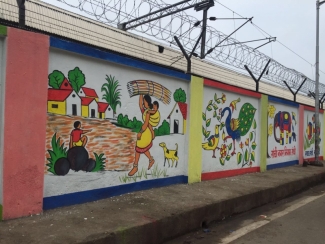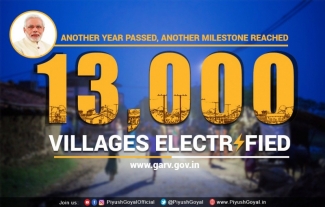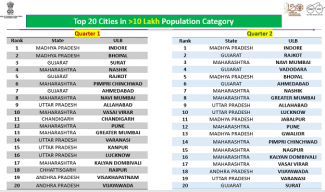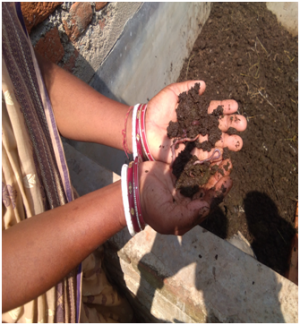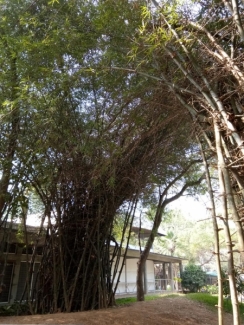
The Cabinet Committee on Economic Affairs has approved a centrally sponsored scheme of National Bamboo Mission (NBM) under National Mission for Sustainable Agriculture (NMSA) during remaining period of Fourteenth Finance Commission (2018-19 & 2019-20) with an outlay of Rs.1290 crore (with Rs. 950 crore as Central share). The Mission would ensure holistic development of the bamboo sector by addressing complete value chain and establishing effective linkage of producers (farmers) with industry.
CCEA has also approved Empowerment of Executive Committee for formulation of guidelines of the NBM and to make the changes therein, including cost norms for various interventions from time-to-time as per the felt needs and specific recommendations of States, with the approval of Union Minister for Agriculture & Farmers Welfare.
The scheme will benefit directly and indirectly the farmers as well as local artisans and associated personnels engaged in bamboo sector including associated industries. Since it is proposed to bring about one lakh ha area under plantation, it is expected that about one lakh farmers would be directly benefitted in terms of plantation.
States/ districts covered:
The Mission will focus on development of bamboo in limited states where it has social, commercial and economical advantage, particularly in the North Eastern region and States including Madhya Pradesh, Maharashtra, Chhattisgarh, Odisha, Karnataka, Uttarakhand, Bihar, Jharkhand, Andhra Pradesh, Telangana, Gujarat, Tamil Nadu and Kerala.
The Mission is expected to establish about 4000 treatment/ product development units.
Bamboo plantation will contribute to optimizing farm productivity and income thereby enhancing livelihood opportunities of small & marginal farmers including landless and women as well as provide quality material to industry. Thus, the Mission will not only serve as a potential instrument for enhancing income of farmers but also contributing towards climate resilience and environmental benefits. The Mission will also help in creating employment generation directly or indirectly in both skilled and unskilled segments.
The restructured NBM strives to -
(i) To increase the area under bamboo plantation in non forest Government and private lands to supplement farm income and contribute towards resilience to climate change.
(ii) To improve post-harvest management through establishment of innovative primary processing units, treatment and seasoning plants, primary treatment and seasoning plants, preservation technologies and market infrastructure.
(iii) To promote product development at micro, small and medium levels and feed bigger industry.
(iv) To rejuvenate the under developed bamboo industry in India.
(v) To promote skill development, capacity building, awareness generation for development of bamboo sector.
Implementation strategy and targets:
The following steps would be adopted for the development of bamboo sector:
I. The Mission will focus on development of bamboo in limited States where it has social, commercial and economical advantage with focus on genetically superior planting material of bamboo species of commercial and industrial demand.
II. Adoption of end to end solution in bamboo sector i.e. complete value chain approach starting from bamboo growers to consumers would be emphasized.
III. Mission has been developed as a platform for integration of Ministries/ Departments/Agencies with implementation responsibilities given based on their mandate.
IV. Capacity building of the officials, field functionaries, entrepreneurs and farmers through skill development and trainings will be emphasised.
V. Focus will be given on Research & Development (R&D) to increase the production and productivity of bamboo.
Background:
National Bamboo Mission (NBM) started as a Centrally Sponsored Scheme in 2006-07, was mainly emphasizing on propagation and cultivation of bamboo, with limited efforts on processing, product development and value addition. There, was weak linkage between the producers (farmers) and the industry. The restructured proposal gives simultaneous emphasis to propagation of quality plantations of bamboo, product development and value addition including primary processing and treatment; micro, small & medium enterprises as well as high value products; markets and skill development, thus addressing the complete value chain for growth of the bamboo sector.
Since 2006-07, an area of 3.62 lakh ha covered under bamboo plantations and 39 bamboo wholesale markets, 40 bamboo bazaars and 29 retail outlets were set up.







